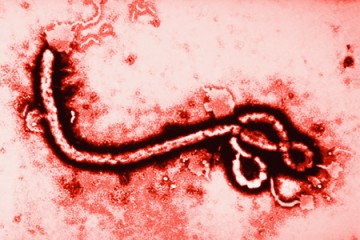Editor's note: As of Oct. 20, 2014, the World Health Organization has declared the end of the Ebola virus outbreak in Nigeria
As Ebola fears spread in West Africa and beyond, a Johns Hopkins expert discussed the challenges associated with containing Ebola in a densely populated city.
Epidemiologists are trying to track down anyone who came in contact with Patrick Sawyer, NBC News reported Tuesday, an American consultant who died on July 25, five days after stepping off a plane in Lagos, Nigeria.
Health officials are concerned that he may have sparked an Ebola outbreak in Lagos, Africa's most populous city with a population of about 21 million (roughly the same as the New York metropolitan area). Thus far, the Ebola outbreak in Africa has mostly been in three countries—Sierra Leone, Guinea, and Liberia, where Sawyer boarded the plane. But the growing number of cases in Lagos—a Nigerian health commissioner said Tuesday that eight people who came into contact with Sawyer, including a doctor who treated him, are suspected to have contracted Ebola and have been quarantined—raises new alarm.
Trish Perl, a professor of medicine and infectious diseases at the Johns Hopkins schools of Medicine and Public Health, said that investigators would work outward from the patient in an effort to contain the spread of the virus. More, from NBC News:
In Sawyer's case, that means tracking down not just who was on the plane with him but who was seated next to him, in front of him, and behind him, she said.
In West Africa, she said, there are cultural challenges to conducting such an investigation and preventing the further advance of the disease, including rampant rumors, mistrust of medicine, and burial practices that can help the disease spread.
And in a city as densely populated as Lagos, "You just sort of having to take everything we're trying to deal with and just magnify it by 800," she said. "You get into crowded areas, it's much easier for people to disappear."
Health officials have stressed that Ebola spreads via direct contact with bodily fluid and that it's unlikely someone would become infected from being on a plane with an infected passenger. Perl told NBC News that guidance was "absolutely on target," but she added that it was important to locate everyone on the plane to be sure no one else was infected, and to reassure the public.
Read more from NBC NewsPosted in Health
Tagged epidemiology, ebola








